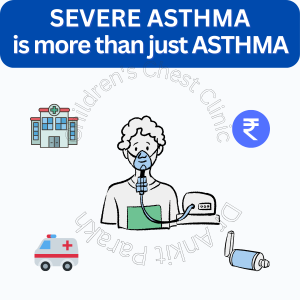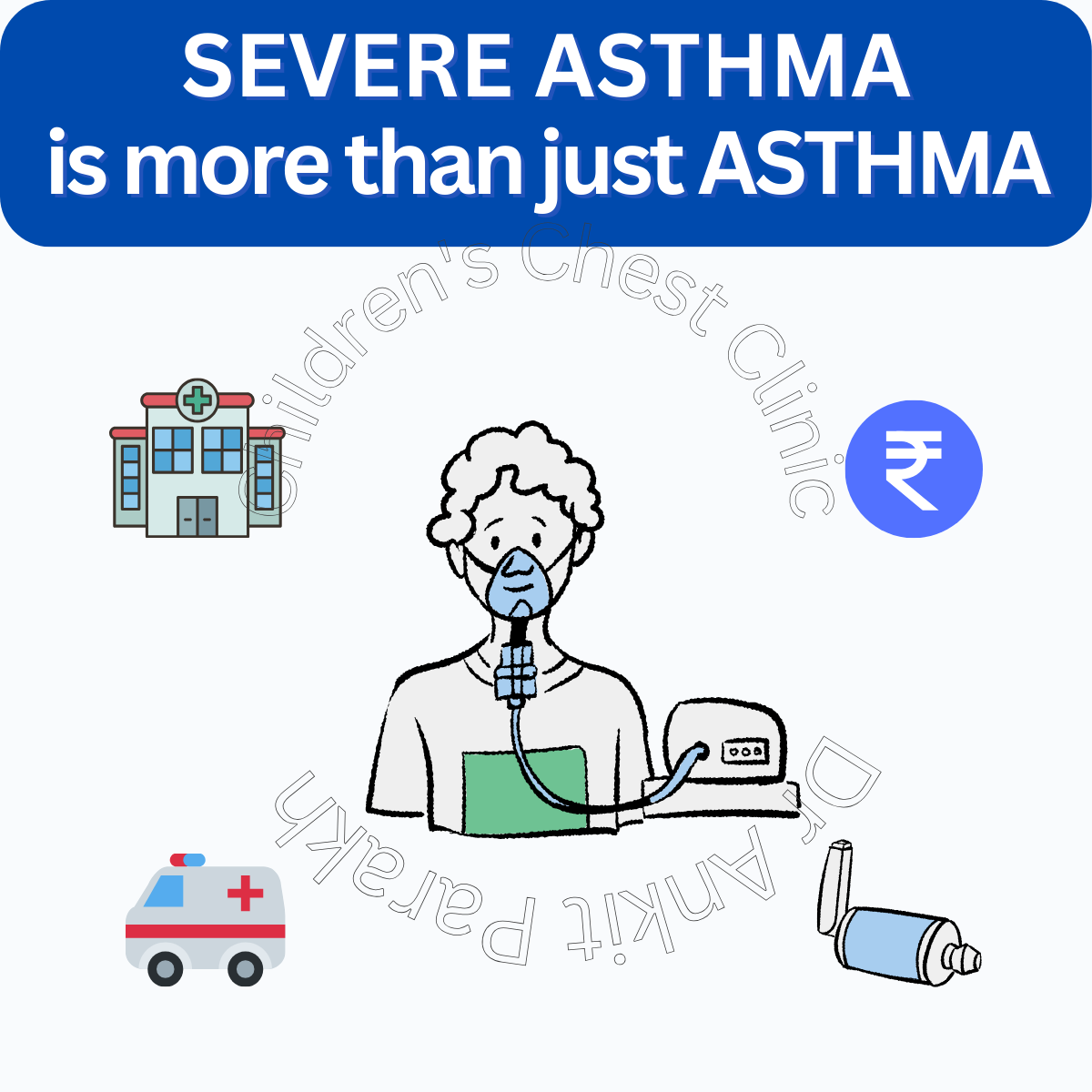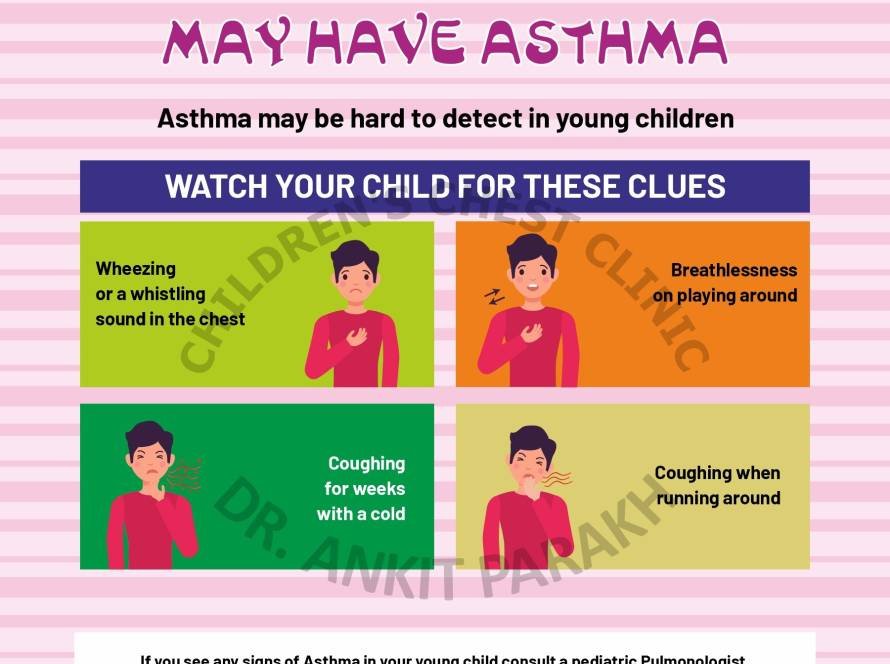Asthma is the most common chronic respiratory problem seen in children, adolescents and adults world over. Most children with asthma respond well to inhaled medicines. However, approximately 5% children with asthma poorly respond poorly to treatment and keep having sustained symptoms.
What is classed as severe asthma in children?
Children who keep having symptoms on moderate doses of inhaled corticosteroid inhalers with additional medicines like long acting beta agonists [like salmetrol or formetrol] and montelukast are considered to have difficulty treating asthma.
What are the common reasons for a severe asthma in children?
The common reasons seen why asthma is difficult to treat are poor adherence to medicines, poor inhaler technique and a poor environmental control of allergen. Poor adherence to the treatment regimen and poor inhaler/spacer technique should be evaluated and assessed in detail. Child’s environment also needs to be evaluated for the presence of allergens like dust mites, pets, cockroaches, molds and pollen. Cigarette smoking is another important trigger which needs to be tackled.
Some children might be diagnosed and treated as asthma but may have another disease or diagnosis. Children should be assessed for such disorders that may mimic asthma. The common asthma mimics are cystic fibrosis, primary ciliary dyskinesia, bronchiectasis, gastroesophageal reflux, tracheomalacia and bronchiolitis obliterans. These should be considered while evaluating a child with difficult to treat asthma.

Comorbid conditions or associated diseases should be evaluated and treated like nasal allergy, eye allergy, sinusitis, gastroesophageal reflux, obesity and sleep apnea.
Some children remain symptomatic despite all the above steps and have a true non response to treatment. This is a small group of children who truly have a poor response to medicines and are thought to have true severe asthma.
What investigations are required in children with severe asthma?
Children with difficult to treat asthma require a detailed case history and examination. Basic investigations done for all children would include pulmonary functions tests like spirometry and impulse oscillometry, allergy testing like skin prick tests and blood allergy tests like immunocap and chest x-ray. Some advanced tests might be required on a case to case basis like CT Scan of the chest and sinuses, bronchoscopy, FeNo, ciliary studies, sweat chloride and genetic analysis.
How do we treat children with true severe asthma?
After the detailed evaluation regarding diagnosis, co-morbid conditions, inhaler technique and environmental control. We usually keep the child under observation and treatment for the next 3 to 6 months to understand the severity of asthma. Tiotropium is a new medicine which is now available and quite effective in children who have difficulty treating asthma. Children who still do not respond need further medicines called biologicals. The biologics which are approved for children are Omalizumab, Mepolizumab and Dupilumab.
If your child is not responding to the usual asthma treatment, you need to get in touch with a pediatric pulmonologist for a proper evaluation, investigations and treatment.






